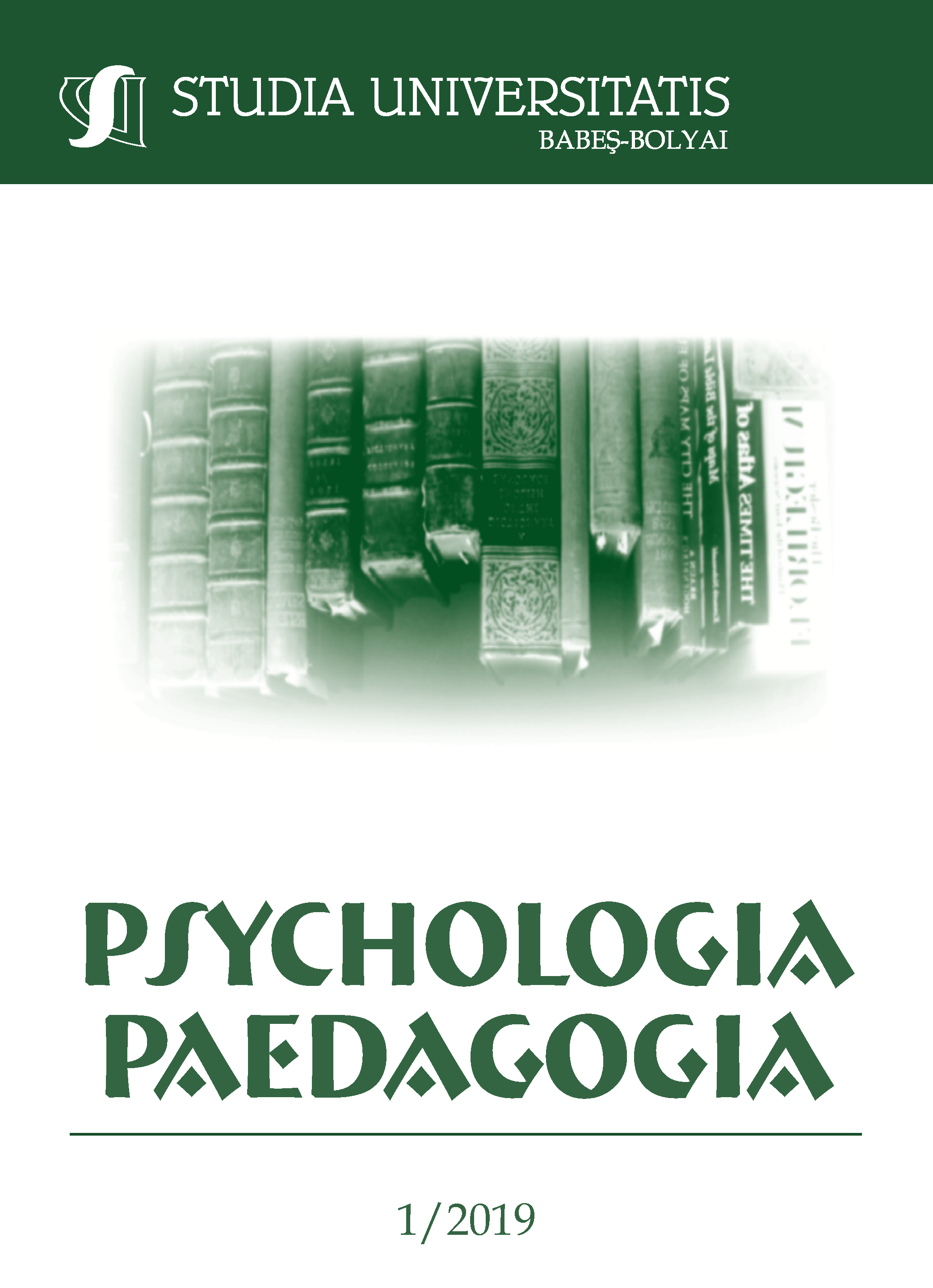SHAPING THE ACTUAL TEACHER’S PROFILE: HOW ICT CAN INFLUENCE IT?
DOI:
https://doi.org/10.24193/subbpsyped.2019.1.06Keywords:
teacher’s profile; ICT skills, initial training, professional development;Abstract
In the actual context of massive technological development, the teacher training process - or even, the teacher self-training one - should be actually based on the acquisition of technical skills, mainly related to the use of Internet and multimedia resources, but also on the didactic skills focused on how to use those resources in order to make the teaching demarche more effective. Generally, in order to introduce ICT in the teaching process, the educators have to go through three distinguish stages of professional development: (a) acquiring the necessary technical skills and introducing ICT for projecting and operationalizing the lessons - even there is an amount of mistrust and fear concerning possible technical and pedagogical problems that may occur; (b) experiencing the ICT implementation in the projected lessons - where the teacher uses the technology to conduct the lessons and improves the teaching process; (c) assessing the ICT resources involved in the lessons or in the possible new ones - ready to be implemented -, and drawing related conclusions. ICT can contribute to shape the nowadays teacher’s profile, bringing crucial added-values to the sets of following competencies: (a) communication; (b) information; (c) pedagogical design; (d) production. By introducing ICT in education, it will be clearly reduced the time consumption and repeatability of tasks, offering to teachers the possibility to spend more time on designing lessons in a new and competitive format, performing and evaluating the training process.References
Allport, G. (1961). Pattern and Growth in Personality. New York: Holt, Rinehart and Winston
Bourdieu, P. (1985). Propositions pour l’enseignement de l’avenir. Rapport du Collège de France. Paris: Minuit
British Educational Communications and Technology Agency (BECTa) (2000) Connecting Schools, Networking People 2000: ICT Planning, Purchasing and Good Practice for the National Grid for Learning. Coventry: BECTa
Chivu, R. (2008). Elemente de managementul educației. București: Meronia
De Landsheere, G. (1991). The information society and education. In: M. Eraut (ed.), Education and the Information Society. London: Cassel, 115-163
Enache, R., & Crișan, A. (2014). The Analysis of Teachers’ Skills and Abilities for the Pre-University System in the Initial and Continuous Training Programs. Procedia Social and Behavioral Sciences, 114, 519-526
Gorghiu, G., Gorghiu, L.M., Brezeanu, I., Suduc, A.-M., Bîzoi, M. (2012). Promoting the Effective Use of ICT in Romanian Primary and Secondary Education - Steps Made in the Frame of EDUTIC Project. Procedia Social and Behavioral Sciences, 46, 4136-4140
Gray, D. (1999). The Internet in school. London: Cassel
Haddad, W., & Draxler, A. (eds.) (2002). Technologies for education: potentials, parameters, and prospects. UNESCO. Available at: http://www.ictinedtoolkit.org/usere/library/tech_for_ed_book.pdf
Iucu, R., & Păcurari, O. (2001). Formare inițială și continuă. Bucureşti: Humanitas
Jager, A.K. & Lokman, A.H. (1999). Impact of ICT in education. The role of teacher and teacher training. Available at: www.leeds.ac.uk/educol/documents/00001201.htm
Jung, I. (2005). ICT-Pedagogy Integration in Teacher Training: Application Cases Worldwide. Educational Technology & Society, 8(2), 94-101
Mitrofan, N. (1988), Aptitudinea pedagogică. București: Editura Academiei Române
National Research Council. (1997). Science Teaching Reconsidered: A Handbook. Washington, DC: The National Academies Press
OECD. (2001). Learning to Change: ICT in Schools. Paris: OECD.
OECD. (2008). 21st Century Learning: Research, Innovation and Policy Directions from Recent OECD Analyses. Available at: http://www.oecd.org/site/educeri21st/40554299.pdf
Todoran, D. (1974). Individualitate și educație. Bucuresti: Editura Didactică și Pedagogică
Văideanu, G. (1988). Educația, la frontiera dintre milenii. București: Editura Politică
White-Cheatham, P. (2014). Moving from Subject-Centered to Student-Centered Objectives: Literacy in the Content Areas. Texas Association of Literacy Educators (TALE), 2(1), 88-97
Downloads
Published
How to Cite
Issue
Section
License
Copyright (c) 2019 Studia Universitatis Babeș-Bolyai Psychologia-Paedagogia

This work is licensed under a Creative Commons Attribution-NonCommercial-NoDerivatives 4.0 International License.


